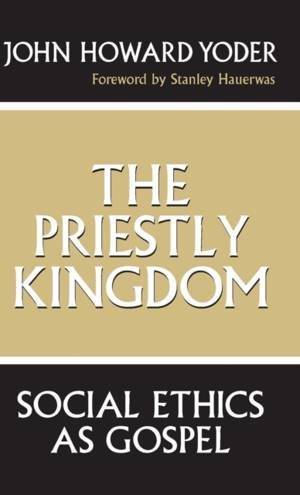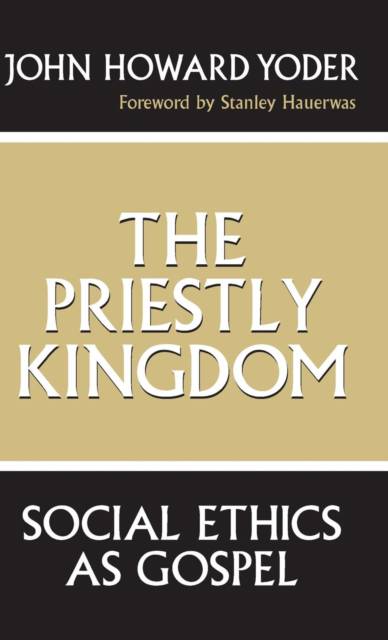
Bedankt voor het vertrouwen het afgelopen jaar! Om jou te bedanken bieden we GRATIS verzending (in België) aan op alles gedurende de hele maand januari.
- Afhalen na 1 uur in een winkel met voorraad
- In januari gratis thuislevering in België
- Ruim aanbod met 7 miljoen producten
Bedankt voor het vertrouwen het afgelopen jaar! Om jou te bedanken bieden we GRATIS verzending (in België) aan op alles gedurende de hele maand januari.
- Afhalen na 1 uur in een winkel met voorraad
- In januari gratis thuislevering in België
- Ruim aanbod met 7 miljoen producten
Zoeken
Omschrijving
In this volume of essays John Howard Yoder projects a vision of Christian social ethics rooted in historical community and illuminated by scripture. Drawing upon scriptural accounts of the early church, he demonstrates the Christian community's constant need for reform and change. Yoder first examines the scriptural and theoretical foundations of Christian social ethics. While personally committed to the "radical reformation" tradition, he eschews "denominational" categorization and addresses Christians in general. The status of Christian community, he argues, cannot be separated from the doctrinal content of beliefs and the moral understanding of discipleship. As a result, the Christian's voluntary commitment to a particular community, as distinct from secular society, offers him valuable resources for practical moral reasoning. From a historical perspective, Yoder reviews the efforts of sixteenth-century radical (or Anabaptist) reformers to return to the fundamental ethical standards of the New Testament, and to disengage the community, as a biblically rooted call to faith that does not imply withdrawal from the pluralistic world. Rather, radical commitment to Christianity strengthens and renews the authentic human interests and values of the whole society. His analyses of democracy and of civil religion illustrate how Christianity must challenge and embrace the wider world.
Specificaties
Betrokkenen
- Auteur(s):
- Uitgeverij:
Inhoud
- Aantal bladzijden:
- 232
- Taal:
- Engels
- Reeks:
Eigenschappen
- Productcode (EAN):
- 9780268016272
- Verschijningsdatum:
- 31/01/1985
- Uitvoering:
- Hardcover
- Formaat:
- Genaaid
- Afmetingen:
- 140 mm x 216 mm
- Gewicht:
- 417 g

Alleen bij Standaard Boekhandel
+ 339 punten op je klantenkaart van Standaard Boekhandel
Beoordelingen
We publiceren alleen reviews die voldoen aan de voorwaarden voor reviews. Bekijk onze voorwaarden voor reviews.









